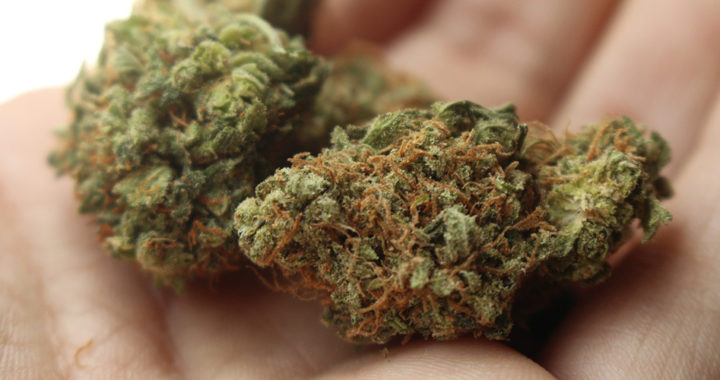Recreational marijuana generally pertains to the use of selected species of the cannabis plant for the primary purpose of exploiting their psychoactive properties. However, although it remains illegal in some parts of the world, several countries and jurisdictions have either legalized or are currently on the process of decriminalizing recreational marijuana.
The issue is a heated topic due to the possible drawbacks of abusing psychoactive substances and the assumptions about the relationship between drug use and crime. But what exactly are the reasons for promoting the use of marijuana for recreational purposes? What are the benefits? What are the risks and drawbacks from legalizing recreational marijuana?
The Pros: Benefits of Legalizing Recreational Marijuana
Benefits to the Local and National Economy
Similar to smoking tobacco or farming and harvesting coffee for mass consumption, one of the reasons why politicians and advocates want to legalize and thus, decriminalize recreational marijuana has something to do with economic gains.
The production and consumption of marijuana beyond its medical purpose can create a new industry that leads to the emergence of businesses, generation of jobs, and additional revenues from taxes for the government.
A report by the Institute of Cannabis Research of the Colorado State University-Pueblo revealed that the local marijuana industry contributed more than USD 58 million to the local economy of Pueblo County. Note that recreational marijuana has been legal in Colorado since 2012.
Supplements Medical Marijuana Use
The legalization of recreational marijuana can also complement the specific medical marijuana sector. It would essentially not create an entire industry but will also create a free and open competition in the market that is currently dominated by large pharmaceutical companies.
Normalizing the production and consumption of marijuana and other byproducts would lead to an easy access to medical marijuana byproducts. What this entails is that individuals who need marijuana for medical purposes will have broader options to purchase from producers and distributors.
Furthermore, because the legalization would result in both competition and commodification, marijuana products could flood the market, thereby resulting in an abundance of supply. The prices of these products could drop, thus making them both accessible and affordable to medical consumers.
Government Savings Due to Decriminalization
Another benefit of legalizing marijuana is government savings. A study by the American Civil Liberties Union or ACLU noted that states collectively spent USD 3.6 billion in 2010 alone enforcing laws related to illegal marijuana possession.
Economists Jeffrey Miron and Katherine Waldock reported in their study that aside from an additional USD 8.7 billion in revenue to the U.S. government, the legalization and decriminalization of recreational marijuana would result in another USD 8 billion in savings.
It is also worth noting that the separate studies of ACLU, as well as from professors Katherine Beckett and Steve Herbert highlighted the fact that government spending on curving marijuana production and consumption costs the public. Adding to this, the prohibition has personal costs ranging from social, psychological, and familial.
The Cons: Risks and Drawbacks of Legalizing Recreational Marijuana
Health Risks of Recreational Marijuana
Despite the benefits mentioned above, there are prevailing contentions against the legalization of recreational marijuana. These arguments center primarily on the adverse health effects associated with the use of marijuana as a psychoactive drug.
A literature review by Wayne Hall that examined studies from 1994 to 2014 discussed the adverse health effects of recreational marijuana use. These include damages brain structure and cardiovascular disease risks, as well as mental health problems such as increased dependence, anxiety and depression, cognitive impairments, and increased psychotic tendencies.
Legalization and decriminalization would essentially mean normalizing the use of marijuana for recreational purposes. To be more specific, this normalization would mean exposing the population to the risks and adverse effects of recreational marijuana on health.
Costs and Other Drawbacks to the Society
Other drawbacks of legalizing recreational marijuana revolve around social costs or burdens. For example, because normalization could lead to increase use and thus, abuse, there are implications on public health similar to the healthcare costs associated with tobacco smoking.
Although the legalized recreational marijuana is restricted to adults, there are also concerns for use and abuse for minors. It is common knowledge that some minors have access to products such as cigarettes and alcohols despite prohibitions. Studies have revealed the impacts of marijuana use in poor academic performance, dropout rates, and eventual unemployment.
The social burdens associated with legalizing the use of marijuana for recreation also collectively translate to economic costs. For example, health conditions linked to marijuana abuse could compel governments to mandate the provision of medical attention, thus requiring funding to new healthcare programs.
FURTHER READINGS AND REFERENCES
- American Civil Liberties Union. 2013. The War On Marijuana in Black and White. New York. American Civil Liberties Union. Available via PDF
- Becket, K. and Herbert, S. 2010. The Consequences and Costs of Marijuana Prohibition. Washington: University of Washington. Available via PDF
- Hall, W. 2014. What Has Research Over The Past Two Decades Revealed About The Adverse Health Effects Of Recreational Cannabis Use? Addiction. 110(1): 19.35. DOI: 10.1111/add.12703
- Miron, J. A. and Waldock, K. 2010. The Budgetary Impact of Ending Drug Prohibition. MA: Cato Institute. Available via PDF
- Zhang, M. 2018. “Legal Marijuana Is A Boon To The Economy, Study Finds.” Forbes. Retrieved online
